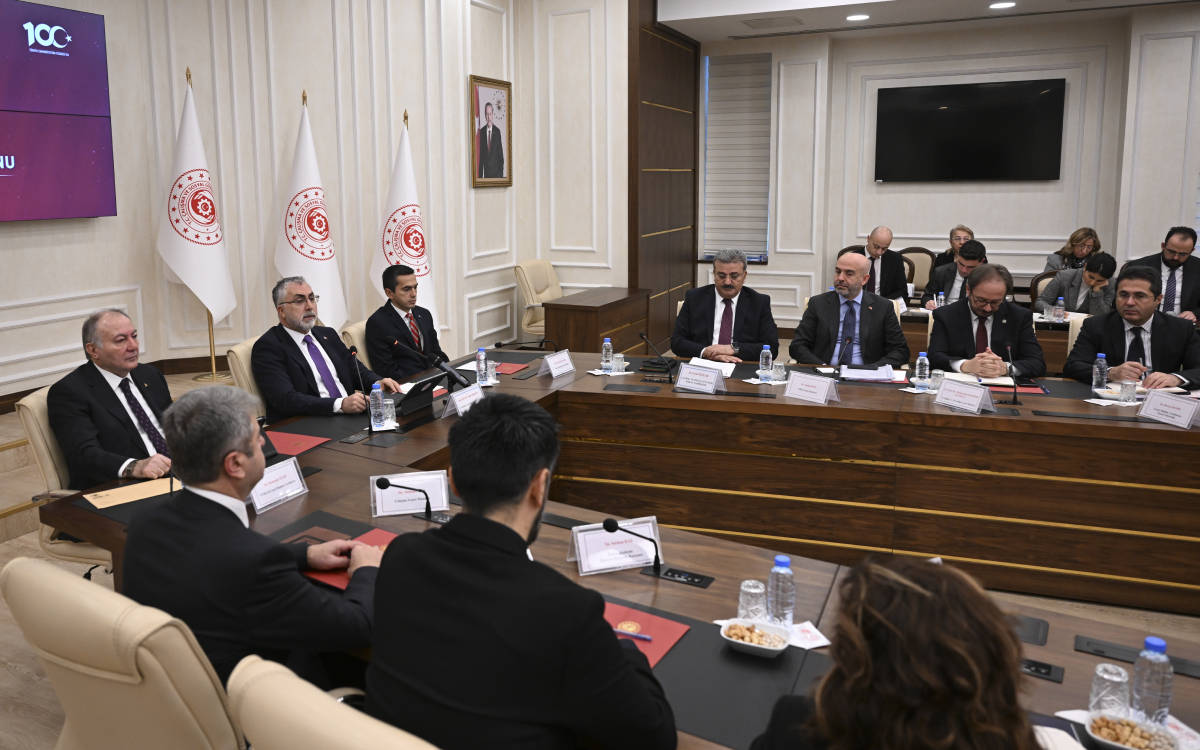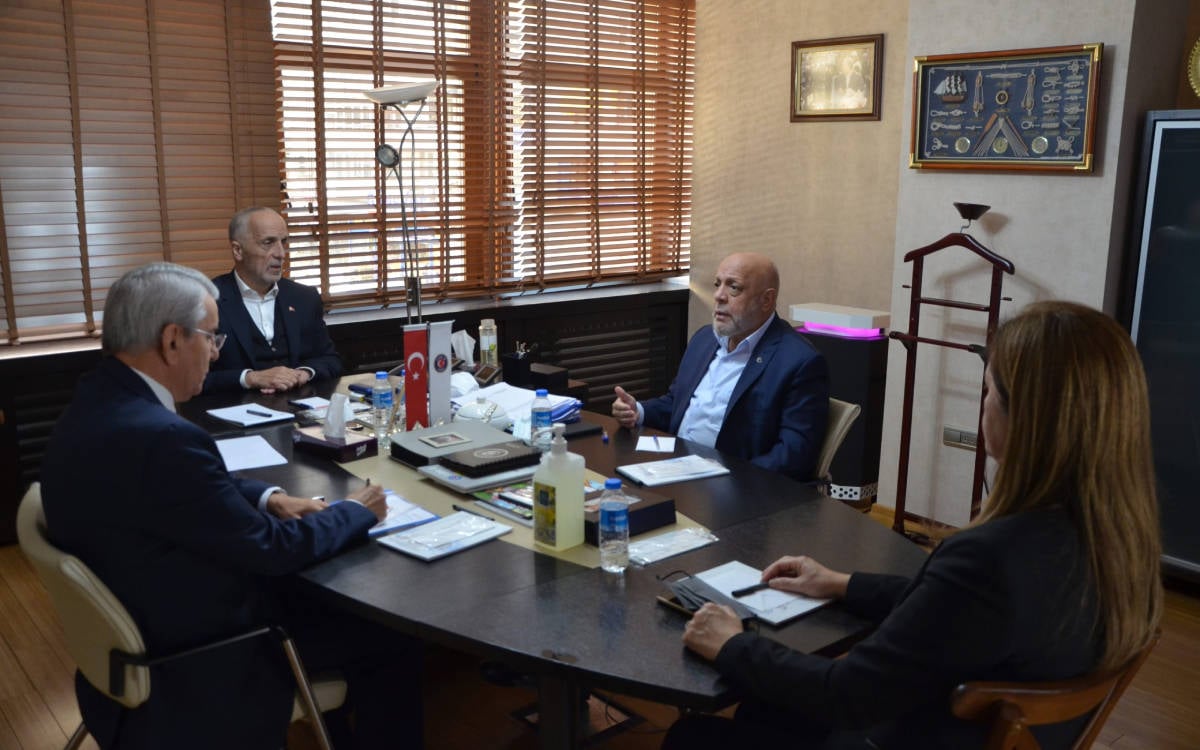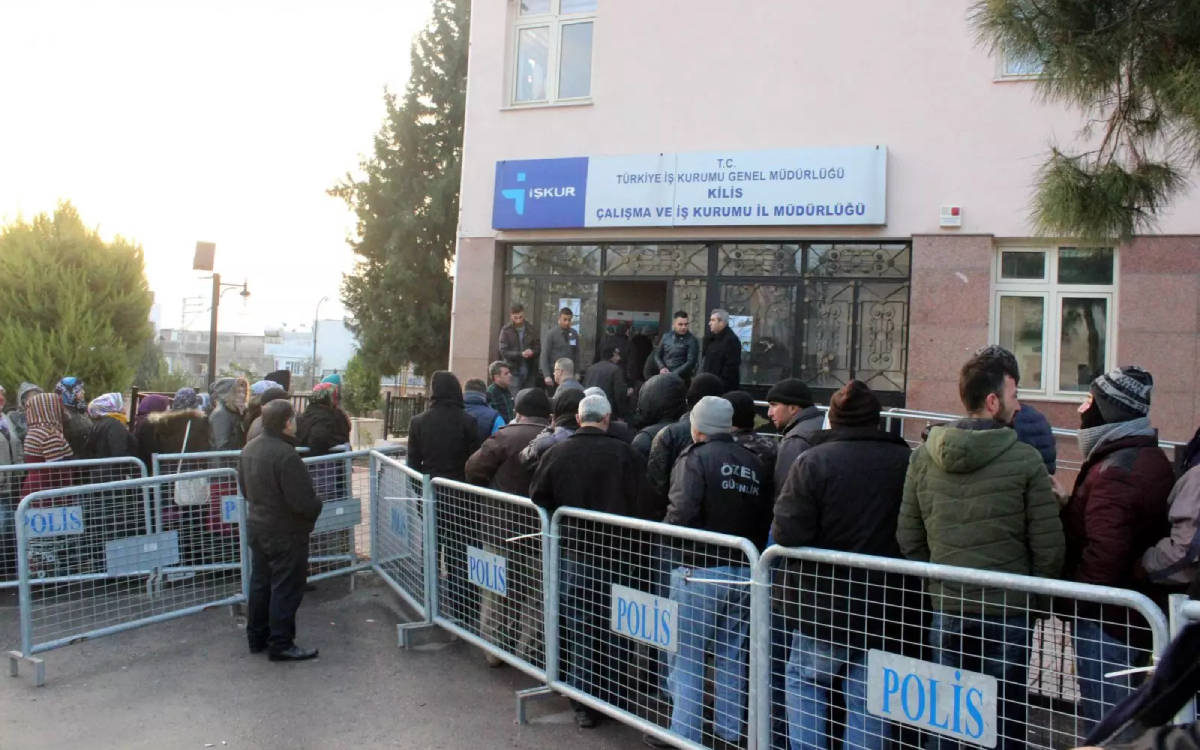The Minimum Wage Determination Commission, consisting of representatives from workers, employers, and the government, held its first meeting yesterday (December 11) in order to determine the minimum wage for 2024.
Chaired by the Minister of Labor and Social Security, Vedat Işıkhan, the commission saw the participation of Ramazan Ağar, Deputy General President of TÜRK-İŞ, representing the workers, and Özgür Burak Akkol, President of the Board of Directors of the Turkish Confederation of Employer Associations (TİSK), leading the employer delegation.
In this year's negotiations, unlike previous years, there was a notable difference in the TÜRK-İŞ delegation, with four workers participating for the first time. The delegation included a cashier, a healthcare worker, an energy worker, and a subcontracted worker from the Highways.
Hatice Akgedik, a mother of two working as a hospital employee in Adana, Meliha Nur Şıkbudak, employed as a cashier in Ankara, Saffet Canbaz, a father of three working in the energy sector in Çorum, and Durmuş Öztürk, a father of three working for the Highways in Bolu, were asked about their views by the commission. In response, the workers expressed that they are struggling to make ends meet with the current minimum wage and requested a livable wage.
While a specific figure for wages was not negotiated in the meeting, the date for the second meeting was set for Monday, December 18, at 13:30.
In his opening speech at the meeting, Minister of Labor and Social Security Vedat Işıkhan emphasized that the determination of the minimum wage is the most crucial social policy tool that sets the bottom limit for wage policies targeting workers in the labor market.
He highlighted that the determination of the minimum wage holds significance not only for workplace harmony but also for labor market dynamics such as unemployment and informal employment.
Ağar: The share of workers in the national income decreasing gradually
TÜRK-İŞ Vice President Ağar emphasized the importance of considering the living conditions of workers first in determining the minimum wage, stating that this is a constitutional provision.
Ağar expressed that the goal of a social state should be to protect the economically vulnerable segments, stating that the reassessment of the minimum wage is eagerly followed by millions of wage earners and their families.
Reminding that the practice of exempting the minimum wage from taxes was implemented last year, Ağar pointed out that steps towards achieving tax justice have not continued following that.
Drawing attention to the ongoing price increases in all areas, especially in food and rent, Ağar said:
"The measures taken have not yet positively impacted the worker's kitchen and living conditions. There is a significant mismatch between the inflation experienced by workers, civil servants, retirees, and the officially announced inflation figures. The minimum wage has been below the poverty line for months. The current daily net minimum wage is still 380 Turkish Lira. With this wage, how can a worker and their family meet their essential needs?"
Ağar stated that workers are not the cause of the economic downturn, adding, "Moreover, despite the increasing number of wage earners in the total sales revenue, their share of the national income is gradually decreasing."
Akkol: Priority is the continuity of employment
Özgür Burak Akkol, the President of the Board of Directors of TİSK, expressed their desire to complete the process of determining the minimum wage for 2024 in the fastest way possible, achieving a balanced figure and consensus that satisfies the expectations of all parties.
Akkol explained that, as TİSK, they prioritize the sustainable prosperity of the country, the protection of workers against inflation, and the continuity of production and employment by keeping businesses and producers standing.
Emphasizing the importance of protecting the incomes of all workers against the increasing cost of living, Akkol said, "We are aware that one of the most important steps that can be taken for this is the update of tax brackets. I hope for a positive, well-discussed process for both workers, employers, and, of course, our country—free from polarization, united, and in solidarity." (HA/PE)







